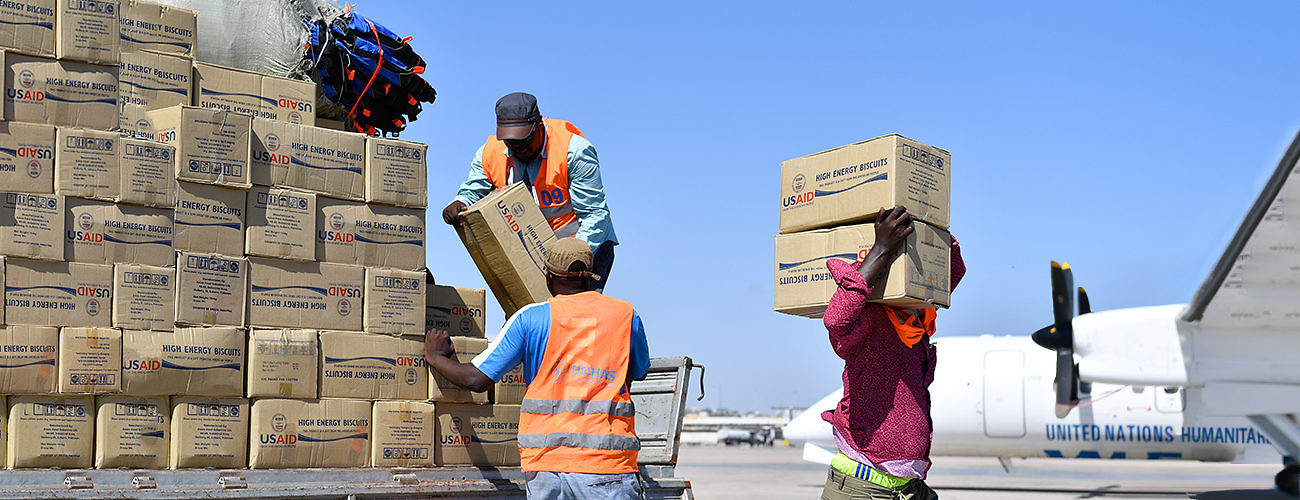Emergency supplies are loaded into a UN helicopter that will deliver them to flood-affected communities in Belet Weyne, Somalia, October 31, 2019. UNSOM.
In recent decades, sanctions have increasingly been used as a foreign policy tool. The UN Security Council has imposed a total of fourteen sanctions regimes alongside those imposed autonomously by the EU, the US, and other countries. Despite efforts to institute more targeted sanctions regimes, these regimes continue to impede or prevent the provision of humanitarian assistance and protection.
This policy paper focuses on the impact of sanctions regimes in four countries: the Democratic People’s Republic of Korea, Syria, Afghanistan, and Somalia. It aims to assist the Security Council, relevant UN organs, UN member states, humanitarian actors, and other stakeholders in ensuring that humanitarian activities are safeguarded in contexts in which sanctions regimes apply. While there are no straightforward solutions, the paper offers several ways forward:
- Including language that safeguards humanitarian activities in sanctions regimes;
- Raising awareness and promoting multi-stakeholder dialogue;
- Conducting better, more systematic monitoring of and reporting on the impact of sanctions on humanitarian activities;
- Developing more and improved guidance on the scope of sanctions regimes; and
- Improving risk management and risk sharing.
This paper is accompanied by an issue brief that provides further detail on the types of impact sanctions can have on humanitarian action.








